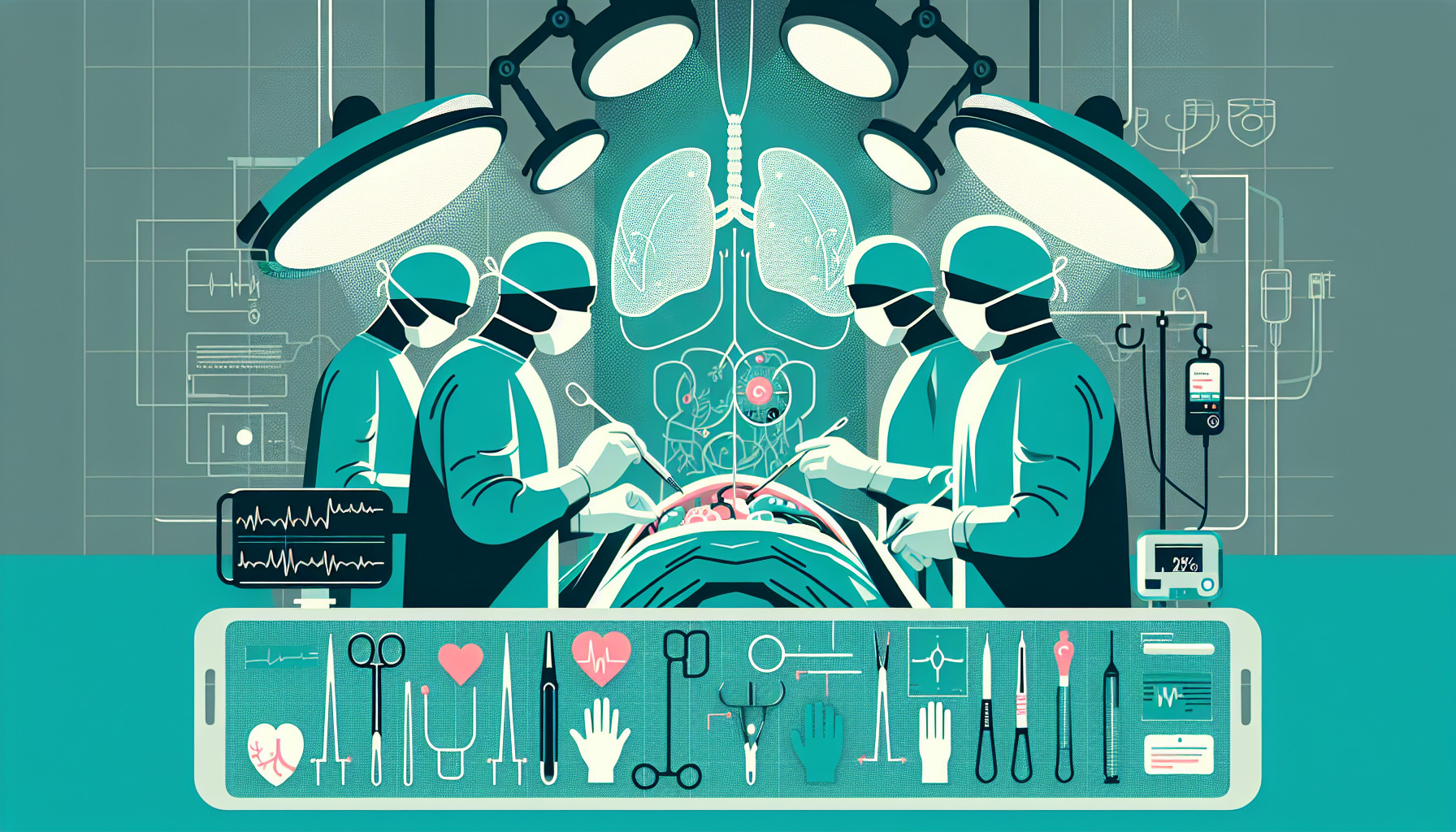Our Summary
This research paper discusses the quality of emergency care for cancer patients in Brazil, where many are treated by surgeons without specific training in cancer surgery. The research indicates that these emergency surgeries often result in higher rates of complications and death, as well as lower rates of cancer survival compared to planned surgeries. The researchers suggest that this is due to the surgeon’s lack of specialized training and the rushed nature of emergency surgeries, which can lead to less thorough removal of cancerous tissue. They propose that improving the training of emergency surgeons in cancer treatment could significantly improve patient outcomes. They recommend creating a national registry for cancer emergencies, developing quality indicators specific to Brazil, and establishing more specialized training programs for emergency physicians treating cancer patients.
FAQs
- What does the research indicate about the quality of emergency care for cancer patients in Brazil?
- How could the training of emergency surgeons in cancer treatment be improved according to the study?
- What are the recommendations proposed by the researchers to improve patient outcomes in emergency cancer surgeries?
Doctor’s Tip
A doctor might tell a patient undergoing oncologic surgery to follow all pre-operative instructions carefully, such as fasting before surgery and avoiding certain medications. It is important to communicate openly with your surgical team about any concerns or questions you may have, as well as any medications or supplements you are taking. Additionally, following post-operative care instructions, such as wound care and physical therapy, is crucial for a successful recovery. It is also important to attend all follow-up appointments and screenings to monitor for any signs of recurrence.
Suitable For
Patients who are typically recommended for oncologic surgery include:
- Patients with early-stage cancer who are eligible for curative surgery, such as those with localized tumors that have not spread to other parts of the body.
- Patients with advanced cancer who may benefit from surgery to remove or reduce the size of tumors, alleviate symptoms, or improve quality of life.
- Patients with cancer that has recurred or metastasized, who may benefit from surgery to remove or control the spread of the disease.
- Patients with pre-cancerous conditions or high-risk factors for developing cancer, who may benefit from preventive or prophylactic surgery to reduce their risk of developing cancer in the future.
It is important for patients to be evaluated by a multidisciplinary team of healthcare providers, including oncologists, surgeons, radiologists, and other specialists, to determine the most appropriate treatment plan for their specific type and stage of cancer. The decision to undergo oncologic surgery should be based on a thorough assessment of the potential risks and benefits, as well as the patient’s overall health and treatment goals.
Timeline
Before oncologic surgery:
- Patient undergoes diagnostic tests such as imaging scans and biopsies to determine the extent of the cancer and plan the surgical approach
- Patient may undergo chemotherapy or radiation therapy to shrink the tumor before surgery
- Patient meets with a multidisciplinary team of healthcare providers to discuss the treatment plan and prepare for surgery
- Patient may need to undergo pre-operative tests and evaluations to ensure they are healthy enough for surgery
After oncologic surgery:
- Patient is monitored closely in the recovery room for any immediate complications
- Patient may need to stay in the hospital for a few days or longer depending on the type of surgery and their overall health
- Patient may experience pain, fatigue, and other side effects from the surgery
- Patient will have follow-up appointments with their healthcare team to monitor their recovery, discuss any further treatments needed, and address any concerns
- Patient may need to undergo rehabilitation or physical therapy to regain strength and function after surgery
- Patient will undergo regular follow-up appointments and surveillance imaging to monitor for any signs of cancer recurrence.
What to Ask Your Doctor
What specific training and experience do you have in oncologic surgery?
What are the potential risks and complications associated with this surgery?
What is the expected outcome of the surgery in terms of cancer treatment and recovery?
How many of these types of surgeries have you performed, and what is your success rate?
What is the recovery process like after the surgery, and what support will be available for me during this time?
Are there alternative treatment options available, and what are the pros and cons of each?
Will I need any additional treatments (such as chemotherapy or radiation) following the surgery?
How long will I need to stay in the hospital, and what is the overall timeline for my recovery?
Are there any lifestyle changes or precautions I should take before or after the surgery to improve my outcome?
Can you provide me with any additional resources or information to help me better understand the surgery and its implications for my cancer treatment?
Reference
Authors: Ferreira FO, Lima TMA, Utiyama EM, Oliveira AF, Von Bahten LC, Ribeiro HSC. Journal: Rev Assoc Med Bras (1992). 2024 Jun 7;70(suppl 1):e2024S109. doi: 10.1590/1806-9282.2024S109. eCollection 2024. PMID: 38865529
